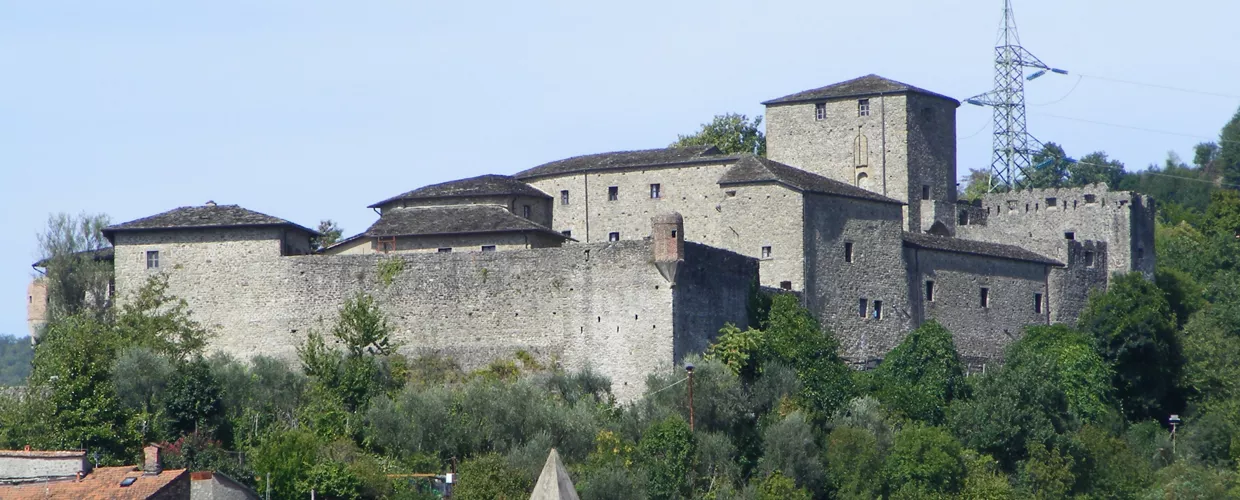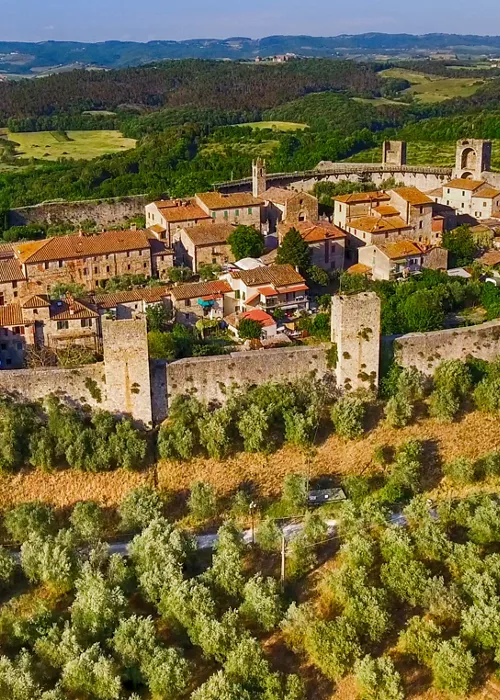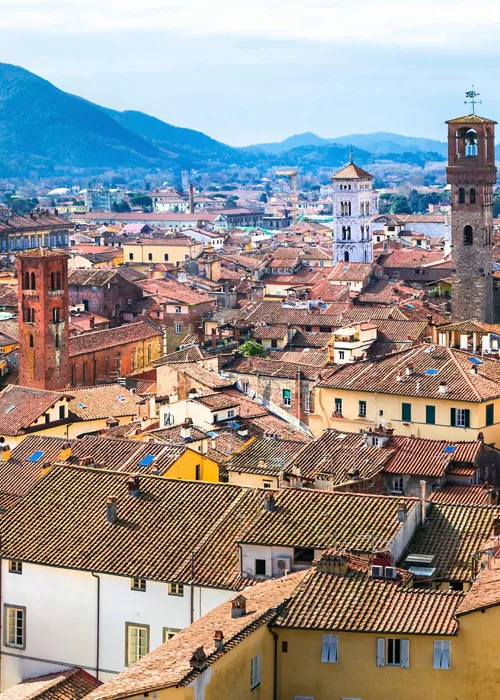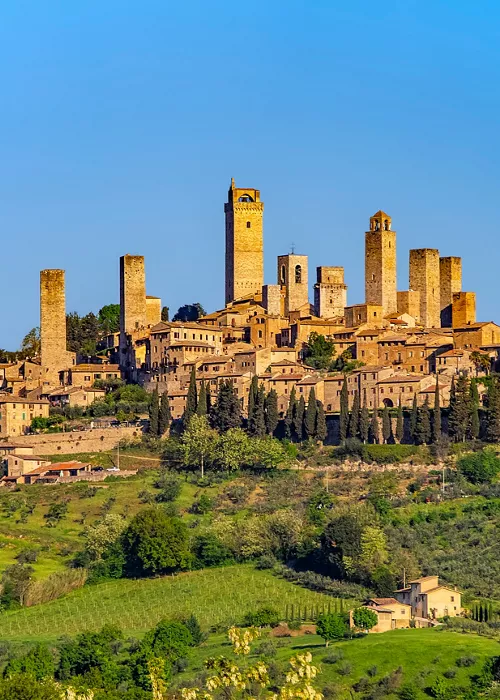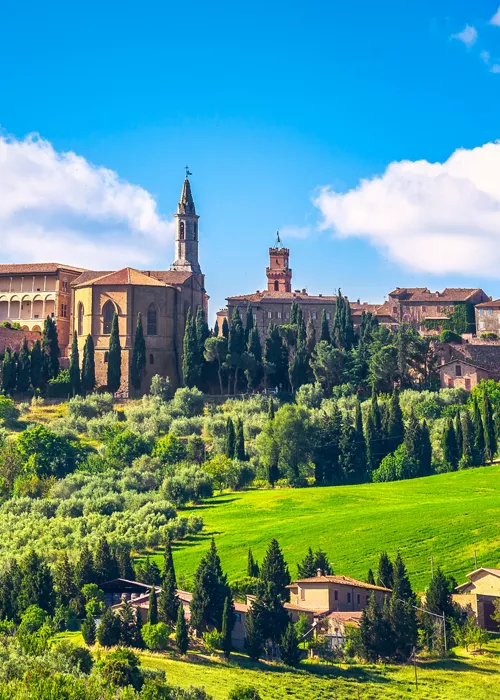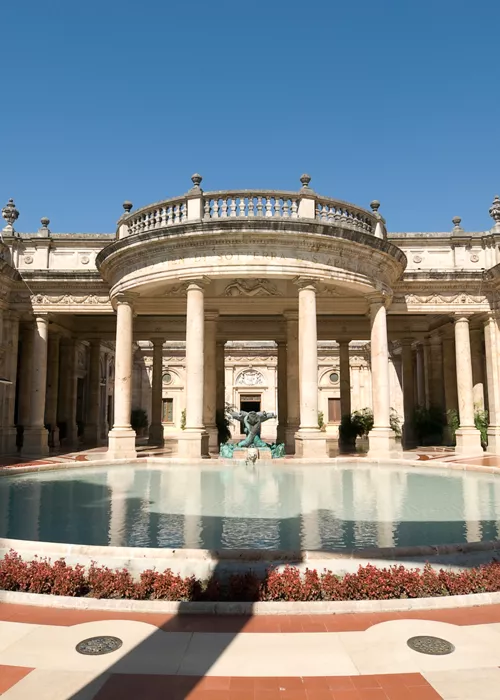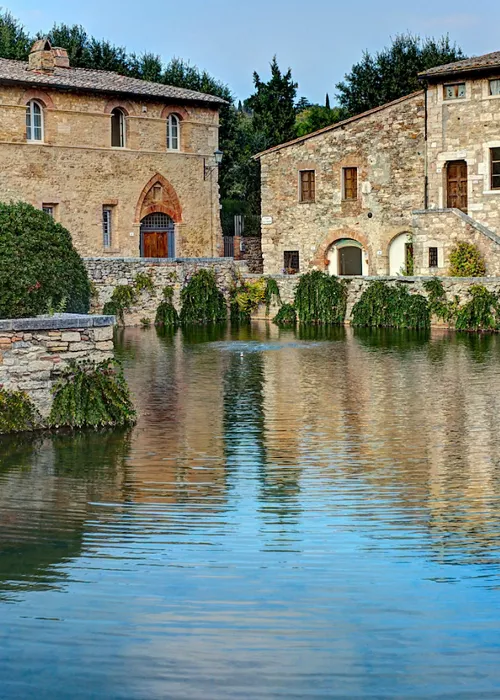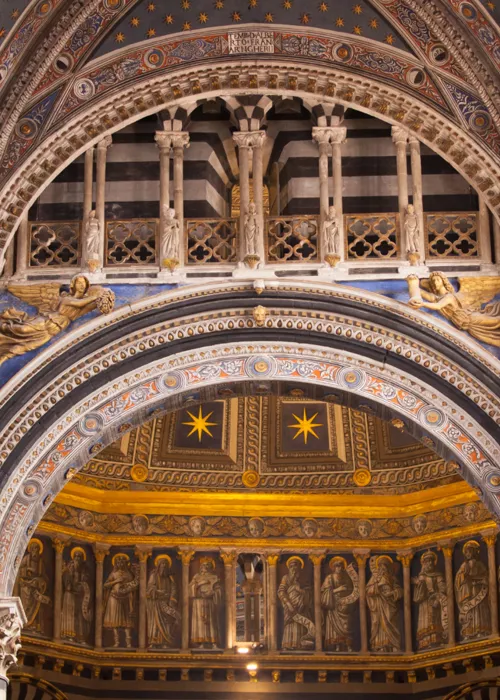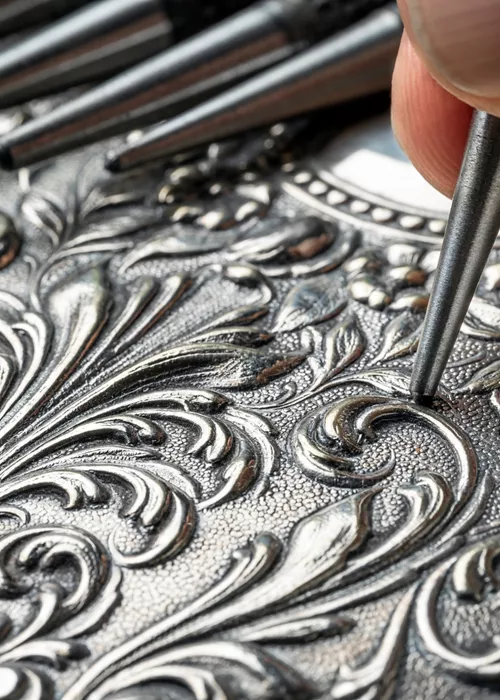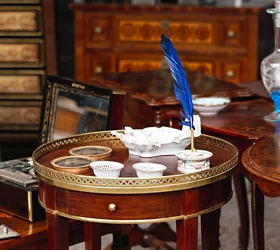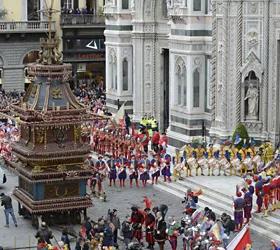Pontremoli and the Mystery of the Stele Statues
Pontremoli, an ancient stop along the Via Francigena, has always stood out as a junction of the major communication and trade routes of the Tuscan-Emilian Apennines, guarded by the Piagnaro castle.
Today the town preserves and enhances the treasures of its rich heritage, including the mysterious Stele Statues, the figures carved in sandstone between the fourth and first millennium before Christ.
The bridge-city between Tuscany and the Po Valley
Pontremoli, located at the confluence of the river Verde and the Magra, in the province of Massa Carrara, owes its name (from pons tremulus, literally “trembling bridge”) to the presence of a wooden bridge and ropes that must not have been very stable. It was mentioned, as a stop along the Via Francigena, by Sigeric, Bishop of Canterbury, in his travel diary on his return from Rome in 990.
In 1200 it was a free municipality, and then came under several seigniories until it was annexed to the Grand Duchy of Tuscany in 1650. Between 1849 and 1859 it was part of the Duchy of Parma and Piacenza as the seat of the Lunigiana parmense.
Its historical centre boasts some notable Baroque palaces (Dosi Magnavacca and Pavesi, both of which are privately owned but can be visited by appointment), the cathedral and the Oratory of Nostra Donna, evidence of its golden age, the Pontremolese Baroque.
The annexation to the Grand Duchy of Tuscany in 1650 signified an authentic rebirth for this area, which once again became a trade crossroads between Tuscany and the Po Valley, as it had been in the Middle Ages.
The castle of Piagnaro
The town of Pontremoli is distinguished by the massive, austere bulk of the Piagnaro castle (11th century), whose towers dominate and control the stretch of the Via Francigena that joins Tuscany from the Cisa pass and related trade. Its name derives from piagne, the term used to indicate the sandstone slabs used to clad the building.
Piagnaro has a thousand-year history of sieges, destructions, reconstructions and alterations to the defence structures, until it was turned into a dwelling in the early 20th century. After a period of abandonment, in the last 30 years it has undergone a restoration campaign and now houses the Ambrosi Museum of Lunigiana Stele Statues, as well as being a welcoming point for pilgrims travelling along the Via Francigena.
The Mystery of the Lunigiana Stele Statues
The Stele Statues are stylised human figures carved out of sandstone, dated between the fourth and first millennium BC, between the Copper and Iron Ages, whose significance is still a mystery to archaeologists.
The statues have been found in Lunigiana since 1827, and are now an identity symbol of the valley. About forty of them are exhibited in the museum, half of all known statues. It is unknown what those figures emerging from the stone represent; whether they are heroes, warriors or gods. The Stele have been catalogued into 3 groups, more or less archaic, with sculptural characteristics that become more and more defined over time.
The museum visit can continue ideally in some of the places where the Stele were found, such as the Filetto forest (11 were found in a chestnut wood) and the archaeological area of Sorano and Filattiera, villages surrounded by enchanting woodland.
The Bancarella Prize
Since 1952, the town of Pontremoli has organised the Bancarella Prize in mid-July, the only Italian literary prize run exclusively by booksellers. It is an important cultural event for the publishing world, and is linked to the original work of the Pontremoli itinerant booksellers, a unique situation in Italy.
Since the end of the 19th century, when bookshops only existed in large cities, families of itinerant booksellers would set out from Pontremoli, crossing the Apennines towards the northern regions to sell, town by town, all kinds of books, setting up their stalls wherever they happened to arrive. Some of these itinerant activities developed over time into permanent bookshops, still managed by the descendants of Pontremolian booksellers.



